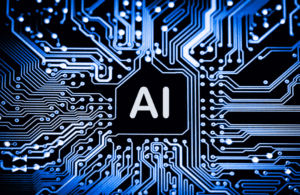The Future is Now - AI in the Lab*
There is a lot of buzz around artificial intelligence and the impact it can have on our lives as managers of laboratory organizations. Artificial Intelligence (AI) will revolutionize the way laboratories operate, bringing unprecedented efficiency and innovation to scientific research. Here’s a look at how AI is reshaping the laboratory landscape:

Automation of Routine Tasks
One of the most significant benefits of AI in the laboratory is its ability to automate repetitive and mundane tasks. AI systems can handle data entry, manage inventory, and even schedule equipment maintenance. This automation not only reduces the workload for laboratory personnel but also minimizes human error, ensuring more accurate and reliable results.
Enhanced Data Analysis
AI excels at analyzing large datasets quickly and accurately. In the laboratory, this capability is invaluable for identifying patterns and trends that might be missed by human analysts. For instance, AI can predict the outcomes of experiments, optimize experimental conditions, and even forecast inventory needs. This predictive power allows researchers to make more informed decisions and prioritize their efforts effectively.
Advanced Image Analysis
AI-powered image analysis tools are transforming diagnostics and research. These tools can analyze complex images, such as tissue samples, with greater precision and speed than traditional methods. In oncology, for example, AI algorithms can quantify cancer markers and predict treatment responses, aiding in faster and more accurate diagnoses.
Drug Discovery and Development
AI is playing a crucial role in accelerating drug discovery. By analyzing vast amounts of chemical data, AI can identify potential drug candidates and predict their efficacy. This reduces the time and cost associated with bringing new drugs to market. Additionally, AI can automate chemical synthesis processes, making drug development more efficient.
Improved Laboratory Management
AI-driven systems enhance laboratory management by monitoring equipment performance and predicting failures before they occur. This proactive approach to maintenance reduces downtime and ensures that laboratories operate smoothly. Furthermore, AI can manage inventory by tracking usage patterns and automatically ordering supplies when needed1.
Conclusion
The integration of AI in laboratories is not just a technological advancement; it’s a paradigm shift that is transforming the way scientific research is conducted. By automating routine tasks, enhancing data analysis, and improving diagnostics, AI is empowering researchers to achieve breakthroughs faster and more efficiently than ever before. As AI continues to evolve, its impact on the laboratory will only grow, paving the way for a new era of scientific discovery.
*As an example, this post was generated by AI.

If you want to learn more about how AI is impacting laboratory management, join your peer managers at ALMA2024. We are featuring a panel discussion on AI in the laboratory where a group of users and experts will be sharing their experiences and ideas.
